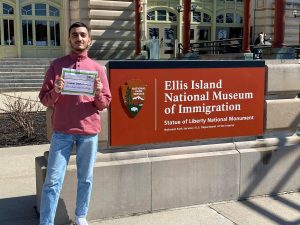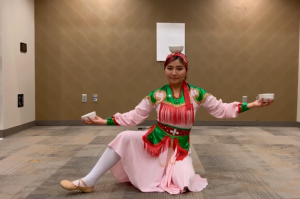Virtual End-of-Program Workshop & Take the Stage!
This month, World Learning held its virtual End-of-Program Workshop for current Global UGRAD participants. Global UGRAD participants joined from across the United States to participate in daily sessions hosted primarily by facilitator Si Norton, as well as Tim Rivera (Senior Advisor for Innovation and Strategy at World Learning). Topics ranged from diversity, equity, and inclusion to action planning and community mapping. Participants shared their experiences with diversity, equity, and inclusion both from their time here in the U.S. and from their home countries. They also had an opportunity to start planning and thinking about ways they can make a difference in their home communities once they return.
With attendance outpacing the already successful November virtual End-of-Program Workshop, the series of summit-format sessions reinforced the Global UGRAD Program’s importance within the international exchange field and its role in preparing future leaders. Here is what one of our Global UGRAD participants had to say about the virtual End-of-Program Workshop!

Nemrut points out that the diversity of the perspectives brought to the sessions, especially by other participants, helped to broaden the spectrum of new ideas and concepts he was introduced to, saying “…I was able to gain many useful ideas, approaches and perspectives about each topic which I will use back in my country.” Nemrut reiterates diversity as a strong point of the sessions with “Another amazing opportunity was being able to talk to my fellow Global UGRADs, share our experiences, find similarities and differences…” -Nemrut Safaryan, Armenia, Presbyterian College

At the same time, Global UGRAD participants were invited to participate in a virtual edition of World Learning’s Take the Stage! event. Our participants took to Facebook to showcase the culture and arts of their home countries to participants in every corner of the U.S. They performed dances, recited poetry, and even taught us some of their language. Performances came from Mongolia, Lebanon, Haiti, Albania, Indonesia, and the Philippines to name a few.